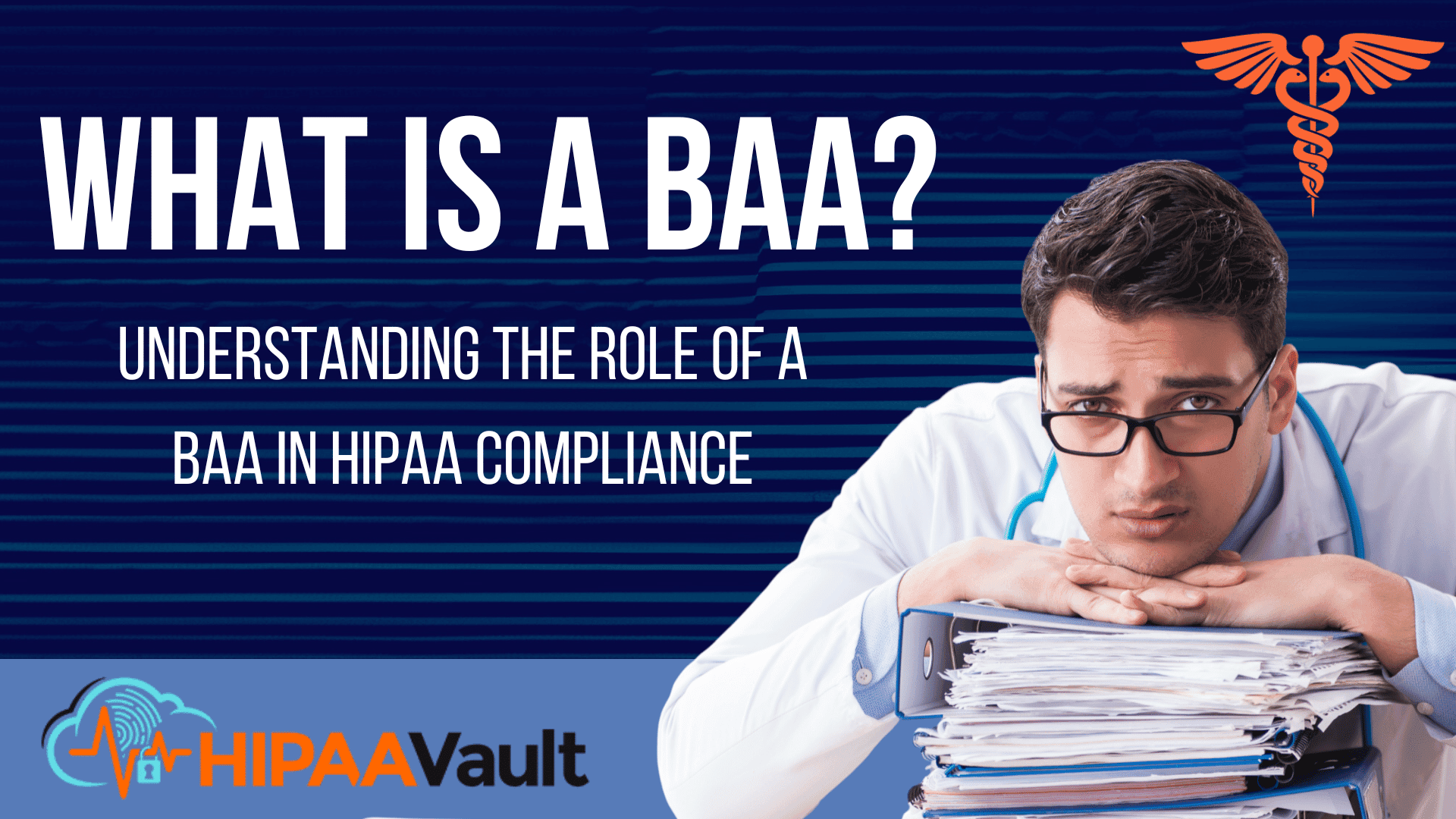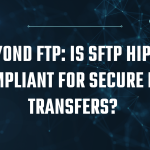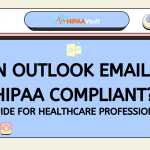
Every healthcare organization has at least one Business Associate Agreement (BAA) in place with a service provide. Anything or anyone that comes into contact with Protected Health Information (PHI) should have a BAA in place, protecting the covered entity (the healthcare organization) and the business associate (the service provider).
Note: Business Associates are not just managed service providers like HIPAA Vault. This term also covers companies that work in Development, Medical billing, Marketing, IT, Telehealth, Cloud storage, EHR, Accounting, Law, Shredding services, etc.
Now, while every healthcare organization has run into a BAA or two, not every employee within these organizations knows what a BAA is. Some may, but don’t have a full understanding of its function.
What is a Business Associate Agreement (BAA)?
A BAA is a legal document between a healthcare provider and a business associate who has access to PHI through a service they deliver. The business associate does not necessarily need to handle PHI- simply having potential access requires a BAA.
But, what is in a BAA?
A proper BAA should include the purpose and use of the PHI, the responsibilities and obligations of both parties entering the agreement, and the consequences of any wrongdoing or breach of confidentiality.
Is a BAA with a third-party vendor really necessary if you’re already following HIPAA guidelines?
When you work with third-party vendors, it’s crucial to have a BAA agreement to maintain HIPAA compliance. After all, you want to make sure that you’re taking PHI security more seriously than an eager beaver during a lumberjack competition. By making sure that your third-party vendors are in compliance with HIPAA regulations (you know- the ones handling your PHI?), you’re not only protecting your patients and your practice, but you’re also preventing any potential legal or financial ramifications you may face if the vendor does breach HIPAA rules. Trust us, investing in HIPAA compliance is like investing in a solid lock for your front door. It may not be flashy, but it will definitely give assurance when you sleep at night.
So, Is a BAA a confidentiality agreement?
It’s a common misconception, but in reality, a BAA serves a much greater purpose in the world of HIPAA compliance. The short answer is no – while confidentiality is certainly a key component of HIPAA compliance. A BAA goes beyond that, specifying everything from data security measures to breach notification procedures. So, while a confidentiality agreement has its place in healthcare, it’s important to understand the unique role and purpose of a HIPAA BAA.

Now that the basics have been covered, let’s dive deeper into the contract and compliance…
Requirements for a Legally Compliant BAA
When you purchase services or software through a business associate, you first want to know that the document you’re about to sign is valid. There are four main requirements for a valid BAA:
- It must be in writing
- It specifies the permitted uses and disclosures of PHI
- It includes provisions for safeguarding PHI
- It outlines the details of reporting and mitigation in the event of a breach
While the legal jargon may seem daunting, taking the time to understand BAAs is well worth the time invested. Especially when it’s your name and signature on it!
How to Ensure You Are Compliant with the BAA Terms in Your Contract
First and foremost, you will want to have read through the entire document and be familiar with your responsibilities in the agreement. However, simply knowing your side of the agreement isn’t enough. You need to make sure that the third party is following through with their end of the bargain. So, how do you do that? Conduct regular audits and assessments, review their policies, and verify their qualifications to handle PHI.
Common Security Risks Associated with Non-Compliance with the BAA Terms
Being unfamiliar with the terms in your BAA can have serious consequences. If you do not understand your responsibilities or those of the business associate, we highly recommend you review your paperwork. There are common security risks associated with non-compliance to the terms of your BAA. Such risks include loss of patient trust, lawsuits, reputational damage, and hefty fines, among others. By remaining compliant, you ensure a safer and more secure healthcare environment.
If you have any questions on the HIPAA BAA or on any of the HIPAA-compliant solutions we provide, please give us a call: (760) 417-5843.
HIPAA Vault is a low-cost leader of HIPAA-compliant solutions. We enable healthcare providers, business organizations, and government agencies to secure their protected health information from data breaches, threats, and security vulnerabilities.
All of HIPAA Vault’s services come with a BAA, so you can trust that we are taking good care of your data. For more information on our hosting services, check out our hosting solutions
Want to learn more about HIPAA compliance? Check out our podcast episode: What Type of Data Needs to be Kept For HIPAA-Compliance? HIPAA Data Retention for Healthcare





